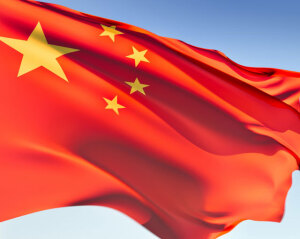by
Brendon Nafziger, DOTmed News Associate Editor | September 21, 2010
Medical device lobbyists and executives from health care companies met in China earlier this month to hash out solutions to trade barriers, such as "country-of-origin" registration requirements.
A delegation of executives from the Advanced Medical Technology Association and companies like Welch Allyn and Varian Oncology Systems met with top Chinese officials in September to discuss trade issues.
China is the U.S. medical device industry's second-biggest market in Asia, according to AdvaMed. Last year, exports totaled $1.3 billion, a 21 percent jump over the previous year.



Ad Statistics
Times Displayed: 1943
Times Visited: 9 Keep biomedical devices ready to go, so care teams can be ready to care for patients. GE HealthCare’s ReadySee™ helps overcome frustrations due to lack of network and device visibility, manual troubleshooting, and downtime.
Still, U.S. manufacturers have some concerns, Nancy Travis, vice president of global strategy with AdvaMed, told DOTmed News in a recent interview.
"I would say our main goal is to access that market on a level playing field with Chinese companies," Travis said. "We'd like trade to remain as open and nondiscriminatory as possible."
One of the main challenges is China's promotion of domestic companies and innovation, Travis said. Many enterprises are state-owned, and the Chinese tend to promote companies through direct grants, rather than programs like R&D tax credits, as seen in the States.
"We're working with the Chinese government to take more market-oriented approaches," Travis said. "There's a tradition in Asia of picking winners and directly investing in companies."
China also requires medical devices to be registered in their country of origin before they can be registered in China. This can be a disadvantage to U.S. companies, AdvaMed said, as it effectively requires products to gain U.S. Food and Drug Administration approval before they can be registered in China.
The problem is this: If products are simultaneously registered in the United States and Europe, European approval generally comes first, AdvaMed said.
"It creates a significant delay for U.S. companies," Travis said.
AdvaMed said if China needs a prior approval requirement, the country should allow companies to get approval from a founding member of the Global Harmonization Task Force, such as Europe, Canada, Japan and Australia, and not only their home country.
The task force, founded in 1992, seeks to encourage uniformity among the world's medical device regulations.
However, Chinese officials tend to balk at the task force, as it discriminates against other countries that aren't founding members (such as China), Travis said. A counterproposal, which focuses on companies adhering to industry quality management standards, was proposed right after the meeting this month, Travis said.
"I'll say they weren't too open to it, but they agreed to look at it," she said. "We'll see. Frankly, it's hard to judge in these meetings."
Travis said the group is working to hammer out a solution to the country-of-origin issue for the U.S.-China Joint Commission on Commerce and Trade meeting in November.

